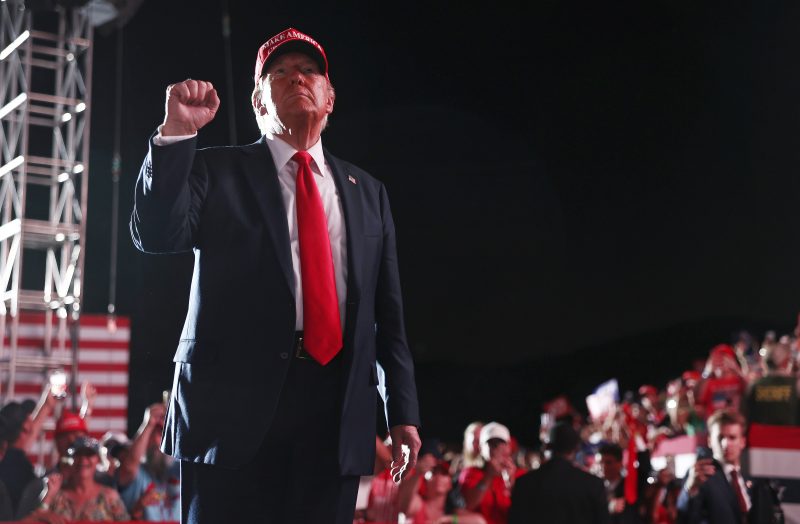In a recent rally, former President Donald Trump made controversial comments suggesting that a protester should be physically assaulted. The incident, which occurred during a campaign event in Alabama, has sparked outrage and renewed debates about political rhetoric and the line between free speech and incitement to violence.
Trump’s statement came in response to a vocal heckler who interrupted his speech. The former president, known for his confrontational style and combative language, didn’t hold back in his reaction. He amplified the tension by suggesting that the heckler deserved to be physically attacked, stating, The security guy did an incredible job knocking the hell out of that guy. I’ll tell you, he was a strong guy.
While Trump’s supporters often praise his confrontational approach as a sign of strength and authenticity, critics argue that his remarks can inflame tensions and incite violence. The call for violence in response to dissenting voices raises concerns about the impact of such rhetoric on public discourse and political culture.
In a democratic society, freedom of speech is a foundational principle that allows for the expression of diverse viewpoints and dissenting opinions. However, there are limits to this freedom to protect against harm and maintain civility. Incitement to violence, as suggested by Trump’s comments, crosses that line and undermines the democratic principles of tolerance and respect for differing perspectives.
The incident serves as a reminder of the importance of responsible leadership and the power of words in shaping public attitudes and behaviors. Political figures, especially those in positions of influence, have a moral obligation to uphold democratic values and promote civil discourse. By using language that encourages violence or aggression, leaders risk inflaming tensions and sowing division within society.
Moreover, the incident highlights the need for accountability in political discourse. Public figures should be held responsible for their words and actions, especially when they have the potential to incite harm or violence. Instead of escalating conflicts and promoting aggression, leaders should strive to engage in respectful and constructive dialogue, even in the face of opposition.
In conclusion, the incident involving Trump’s comments about a heckler being physically assaulted underscores the importance of responsible leadership and the power of language in shaping public discourse. While freedom of speech is a fundamental right, it must be exercised responsibly to prevent harm and maintain a healthy democratic culture. By promoting respect, tolerance, and civility in political rhetoric, leaders can contribute to a more inclusive and harmonious society.
